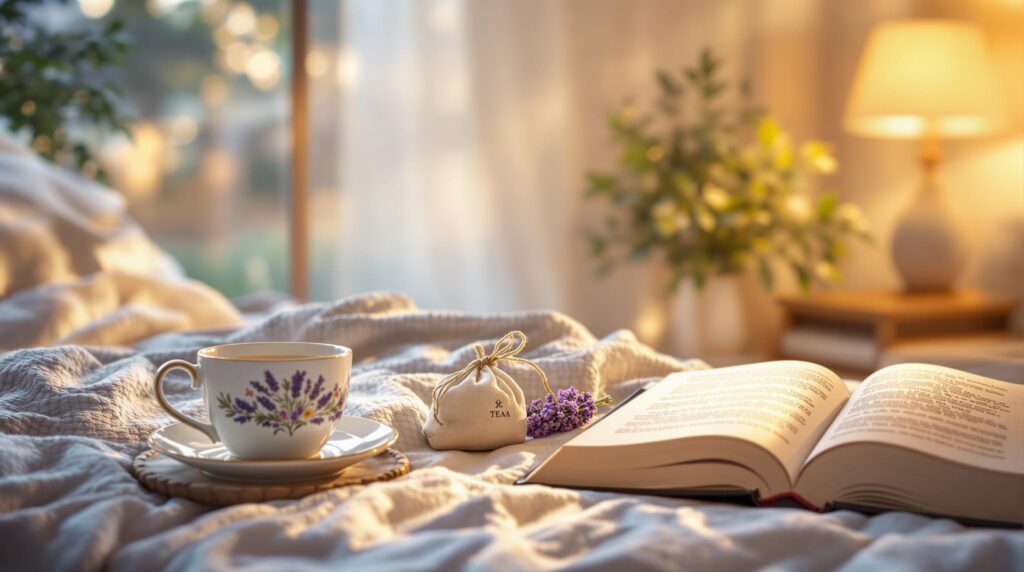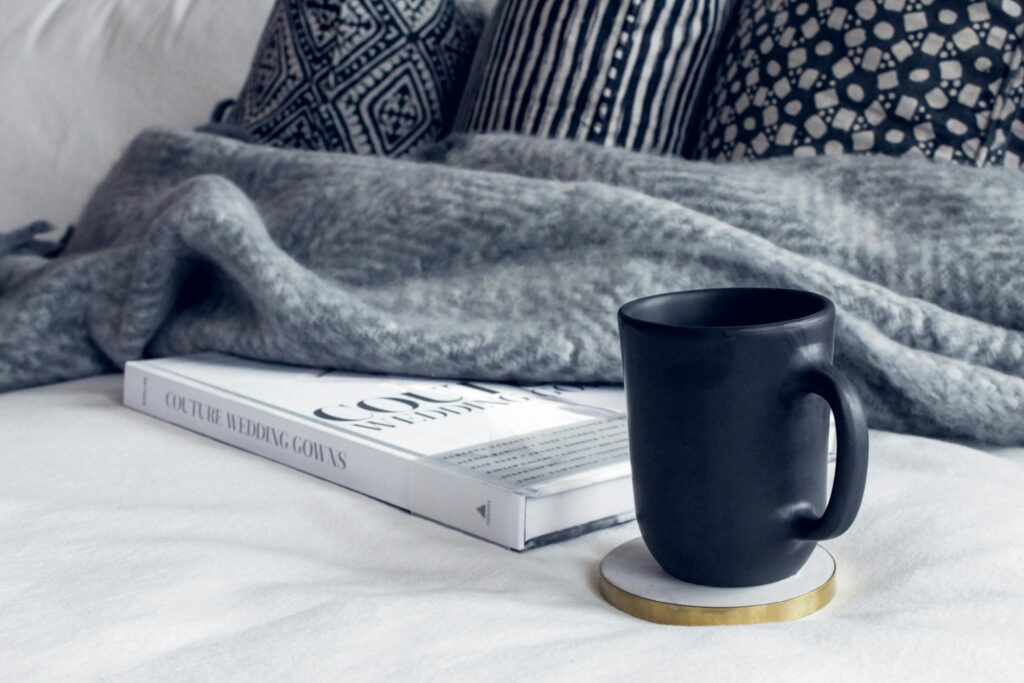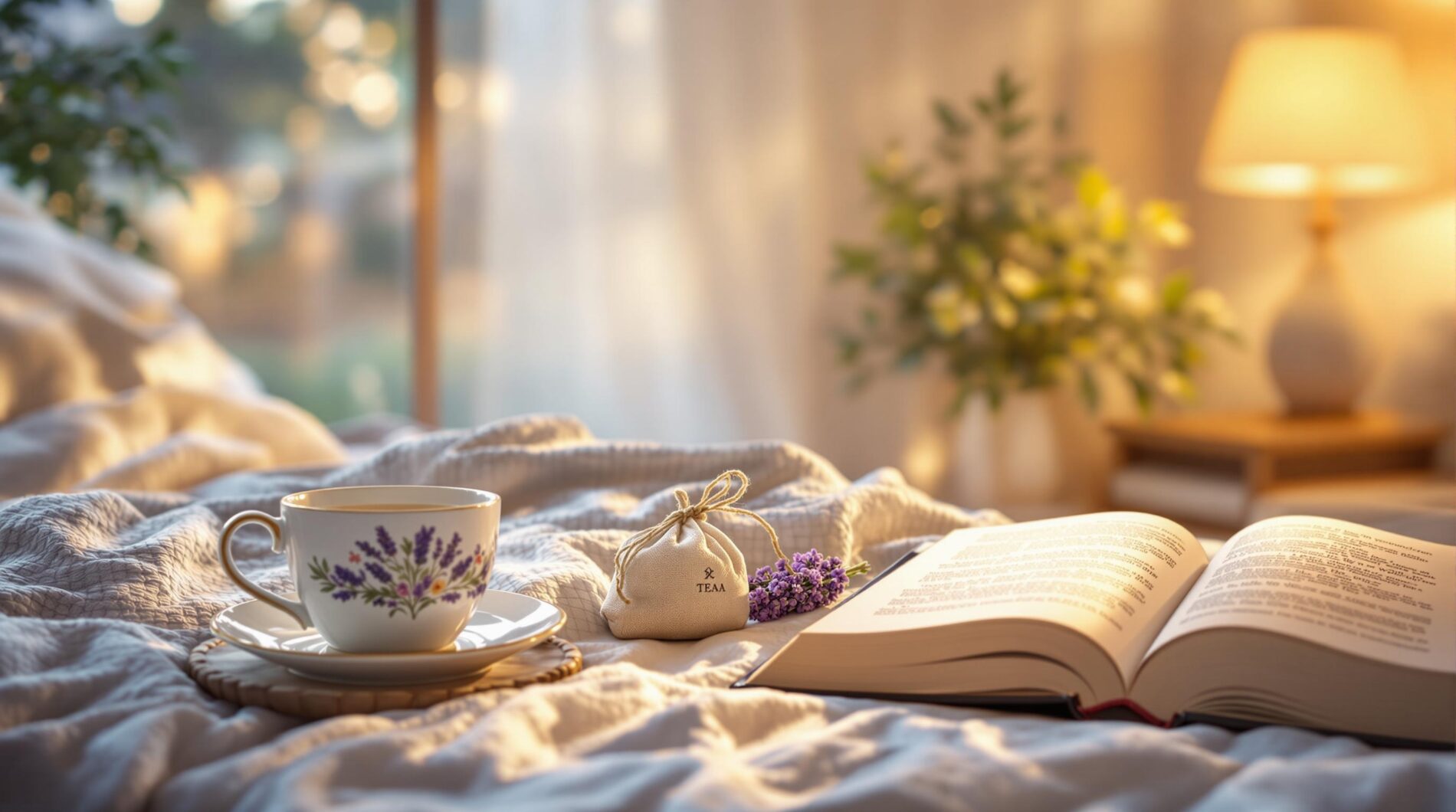Restful sleep often feels like a luxury. Many of us struggle with insomnia, light sleep, or frequent nighttime wake-ups. This is not uncommon in a world of notifications, deadlines, and endless to-do lists. Sleep issues often lead to exhaustion and health issues. While pharmaceutical sleep aids are an option, they often come with side effects and dependency risks.
Thankfully, there are natural solutions. From herbal remedies to lifestyle adjustments, natural sleep aids can help you get a better night’s rest.

Herbs
Certain herbs have been used for centuries to promote relaxation and deep sleep. Here are some of the most effective botanical remedies:
1. Valerian Root
Valerian root works by increasing gamma-aminobutyric acid (GABA) levels in the brain, which is calming. Studies suggest it can improve sleep quality and reduce the time it takes to fall asleep, and has been used for centuries.
2. Chamomile
This gentle herb is widely known for its calming effects. Chamomile contains apigenin, an antioxidant that binds to receptors in the brain, promoting sleepiness. A warm cup of chamomile tea before bed can be a simple, soothing ritual.
3. Passionflower
Passionflower enhances GABA activity, helping the body to relax and can be good for anxiety-related sleep issues.
4. Lavender
The scent of lavender has been scientifically proven to slow heart rate, lower blood pressure, and reduce stress. This can be used in a variety of different approaches, such as essential oils, herbal teas, or pillow mists.
Nutrients That Support Healthy Sleep
Deficiencies in key vitamins and minerals can interfere with sleep quality. Supplementing with the right nutrients can support your body’s natural sleep processes:
Magnesium
Magnesium plays a crucial role in relaxation by regulating neurotransmitters and melatonin production. Low levels of magnesium are linked to restless sleep and frequent wake-ups. Foods rich in magnesium include leafy greens, nuts, and seeds, or you can take a magnesium supplement an hour or two before bed.
Melatonin
Melatonin is the hormone responsible for regulating the sleep-wake cycle. While the body naturally produces melatonin, exposure to artificial light and inconsistent sleep schedules can disrupt its production. Low-dose melatonin supplements or melatonin-rich foods like tart cherries and walnuts can help restore balance, but be aware that you should use melatonin safely and be aware of possible side effects.
L-theanine
Found in green tea, L-theanine promotes relaxation without sedation. It helps reduce stress levels and enhances alpha brain waves, a natural part of the sleep cycle.

Lifestyle Adjustments for Deeper Rest
Even the best natural sleep aids won’t be fully effective without supportive lifestyle habits. Here are a few ways to create the ideal environment for deep sleep:
Limit Blue Light Exposure
Screens emit blue light, which suppresses melatonin production. Try using blue-light-blocking glasses or turning off screens at least an hour before bed to help your body prepare for sleep.
Maintain a Consistent Sleep Schedule
Going to bed and waking up at the same time every day helps regulate your circadian rhythm. Even on weekends, sticking to a schedule can prevent sleep disruptions.
Create a Relaxing Bedtime Routine
Gentle stretching, meditation, or listening to calming music can signal to your body that it’s time to unwind. Avoiding stimulants like caffeine and alcohol before bed also supports deeper rest.
Taking a hot bath or shower before bed can help your body to signal a sleep routine.
Optimize Your Sleep Environment
A cool, dark, and quiet room enhances sleep quality. Consider blackout curtains, white noise machines, or aromatherapy to create a peaceful sleep sanctuary.











Amber Myers
February 12, 2025I will have to try these for sure. I hate when I can’t sleep so I am willing to try anything!
Kathy
February 12, 2025I love this list. I love having chamomile tea often for helping with sleep. It is one of my favorites.
Lavanda
February 13, 2025These are such great tips for improving sleep! I’ve noticed a big difference when I limit screen time before bed and stick to a consistent sleep schedule.
vidya
February 13, 2025I did not realize that green tea might also help.. will have to use lavender essential oils in our humidifier (which we are finally using and loving) in the night to help with sleep
Jennifer Passmore
February 14, 2025I’ve heard about valerian root helping for sleep, I have just never gotten around to trying it out. I think its time that I do! Thank you for sharing this post!